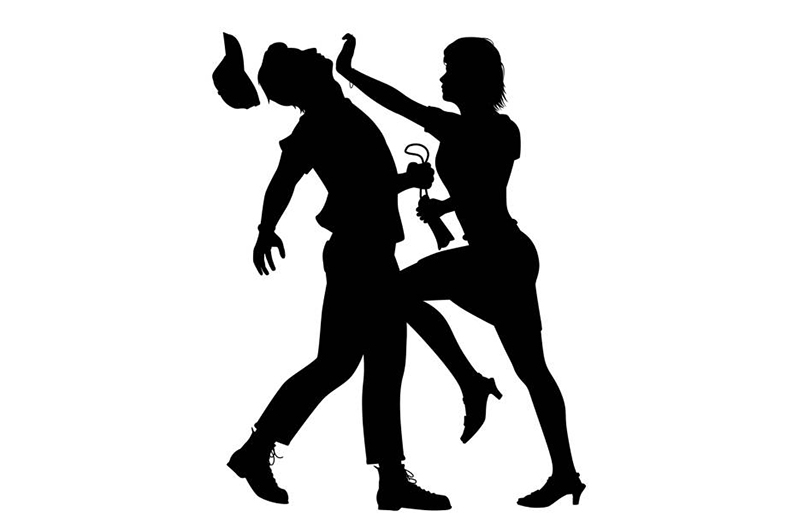By Vanessa Cort
AS violent crime against women continues to rise worldwide, debate is growing about the necessity for women to be able to protect themselves and how this can best be done.
While women have recourse to the law and can seek protection or restraining orders, these often do not prevent an attack and mostly come into play following an assault.
In cases of domestic violence, women have been attacked not only by their current partners, but by men with whom they are no longer in relationship. There have been several such cases reported in this country, many ending tragically.
Advocates of self-defence point out that apart from learning to protect themselves, women also gain confidence and heightened self-esteem. In addition, knowledge that a woman can defend herself also decreases the likelihood of an attack.
However, in male-dominated societies, which are in the majority across the globe, it seems many women are reluctant to join a self-defence class for fear this will be frowned upon by a society which has taught us to be passive and accepting.
In fact, in the early part of the 20th century, when women began practising self-defence, some men denounced them as “indecent and unnatural”. In 1901 a horrified male minister in England was reported as saying that women were threatening to break down “barriers of distinction between sexes”.
 Attitudes have changed greatly since then but the mass media, in more recent times, have been accused of perpetuating the myth that self-defence is “unfeminine and unattractive”. Articles have portrayed women who engage in self-defence as masculine, “jacked up” or with an unhealthy love for violence.
Attitudes have changed greatly since then but the mass media, in more recent times, have been accused of perpetuating the myth that self-defence is “unfeminine and unattractive”. Articles have portrayed women who engage in self-defence as masculine, “jacked up” or with an unhealthy love for violence.
There is a call now for women to realise that self-defence is a means of us taking safety into our own hands and avoid becoming a statistic like the one which says that the majority of women die in their own homes at the hands of an intimate partner.
In an article on why women’s self-defence is important, the International Taekwondo Federation urges women to be accountable for their self-defence in the same way that we are constantly encouraged to be accountable for our health, weight, diet and other concerns.
They go on to say, “Of course we need better education to end violence against women…Unfortunately though, education is long term and may not be able to help you today, tomorrow or even next year. That is why women’s self-defence education is important. This is something that can happen now”.
Apart from also being a great form of exercise, self-defence classes can sharpen your mind and reflexes, help you to develop an awareness of your surroundings and keep you in a state of preparedness.
Sara Kanwar Rathore, a researcher at a university in India, where there has been a steady increase in gender-related violence, pointed out that, an obvious reason for learning self-defence is being prepared to defend yourself “if you’re ever in immediate danger”. She declared, “Having no plan for how to deal with that situation leaves you exceptionally vulnerable”.
No attack is ever the victim’s fault, researchers emphasise and not all preventable. But supporters of self-defence stress that it can help victims stop a vicious attack or escape from their attacker.
As Grand Master Max Massiah said in last week’s article, what he teaches is not about fighting, but about being able to defend yourself against an attack.
And one East London woman, who said she was tired of being harassed by drunken men on nights out with friends, commented, “At least you know some moves…not to fight someone but…get away”.




.png)









